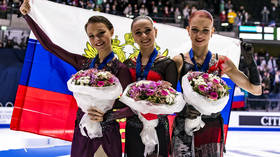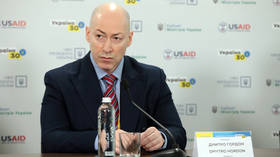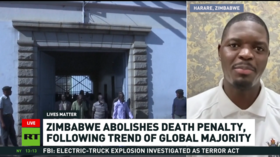Russian Olympic champion accuses BBC of distorting words over Ukraine
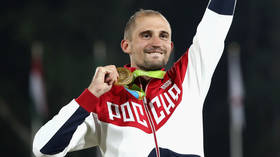
Olympic champion Aleksander Lesun has denied that his recent retirement had anything to do with the conflict in Ukraine, after the BBC published an interview with the Russian athlete which claimed he had removed himself from competition “as a way of expressing opposition.”
The BBC published its interview with Lesun on Thursday under the headline ‘The Olympic champion who turned his back on the Russian regime – and why few in sport will follow’.
The article went on to suggest that Lesun – who was born in Belarus but represented Russia from 2009, winning gold in the modern pentathlon at the 2016 Rio Olympics – had called time on his career in February as an act of protest.
“I quit all my sports positions on 22 February and in two days all the events [in Ukraine] began,” Lesun is quoted as saying by the BBC.
“What did I feel? Can I use swear words in this interview? To say that I was shocked is to say nothing. I understood the world would never be the same again.”
The author of the piece describes the 33-year-old as “one of the very few Russian sportspeople to speak out against the war in Ukraine – removing himself from representing his country as a way of expressing opposition.”
The article also quotes Lesun as describing the situation in Russia as “very severe” in reference to potential punishments for taking part in protests, and that “sportspeople in Russia are like a tool of propaganda.”
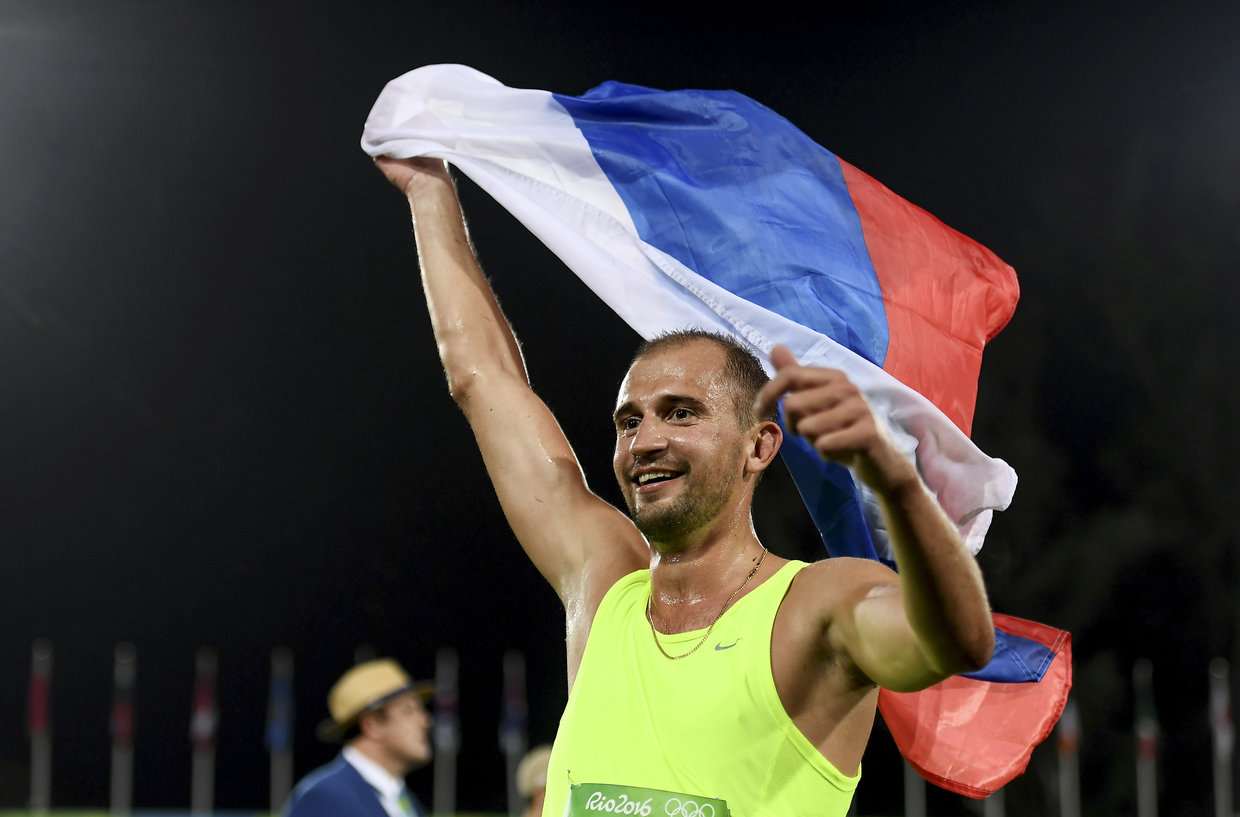
Lesun, however, has taken issue with the article, claiming his words were distorted and that his retirement had nothing to do with Russia’s military campaign in Ukraine.
“The vector [angle] is strongly shifted in this material, and I’m shocked by this,” Lesun told Match TV.
“It seems like my words, but the journalists have shifted the vector of my statements. I just said that in February I ended my sports career, and that I don’t want to compete in the modern pentathlon anymore.
“This has nothing to do with the operation in Ukraine. I didn’t refuse to compete for Russia because of the political situation.
“I ended my career because of what’s happening in the world of modern pentathlon in general, [and] because of personal aspects associated with our federation.
“I used to live in Belarus, I came to Russia, and it was Russia that made me an Olympic champion, it was the Russian coaching staff. I understand that perfectly.”
Lesun admitted his frustrations with the Modern Pentathlon Federation of Russia, although its president suggested the door could be open for future cooperation, potentially as a coach.
“The fact is that Lesun won gold in Rio in 2016. But unfortunately, after he performed well, all these [past] six years he didn’t really perform at all,” said the organization’s president, Viacheslav Aminov, in comments to Match TV.
“His statements are his personal opinion. He can’t compete for the Russian national team because he’s been out of the national team for a long time.
“He’s also not on the coaching staff. I think that this is his emotional personal opinion, which isn’t shared by the federation and the coaching staff…
“I think he’ll calm down. If he makes up his mind and adheres to all the rules that are in the federation, then we will most likely have a future.”
In addition to the Olympic gold he won in Rio, Lesun was a four-time world champion and five-time European king.
The last significant medal he earned was bronze as part of the Russian relay team at the 2019 World Championships in Budapest.
